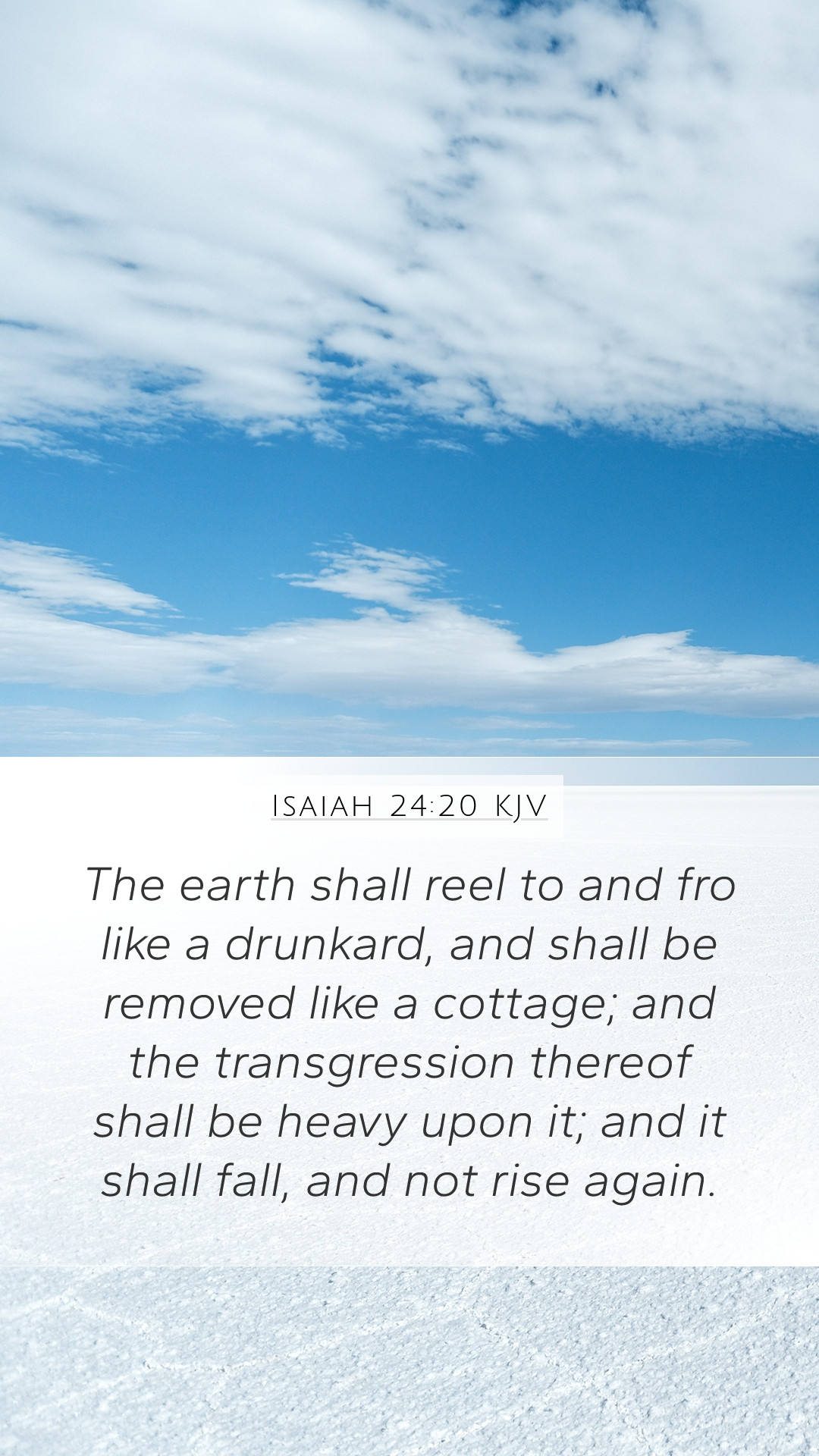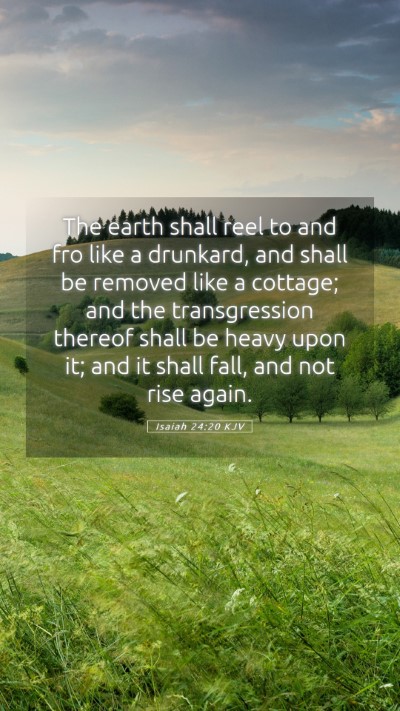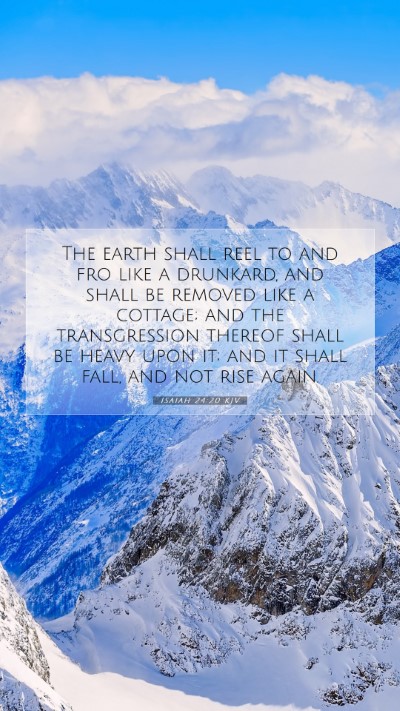Bible Verse Commentary on Isaiah 24:20
Isaiah 24:20 states: "The earth shall reel to and fro like a drunkard, and shall be removed like a cottage; and the transgression thereof shall be heavy upon it; and it shall fall, and not rise again." This verse serves as a profound illustration of the consequences of sin and God's judgment upon the earth. Below is a synthesis of insights derived from trusted public domain commentaries to enhance understanding of this scripture.
Meaning and Context
This verse occurs within a larger prophetic discourse in the Book of Isaiah, where the prophet forewarns Israel and the nations about impending desolations due to their transgressions. It symbolizes upheaval in both the natural world and moral order.
Divine Judgment
As Matthew Henry notes, the "earth" represents not merely the physical ground but symbolizes the world and its systems subject to divine authority. The imagery of "reeling to and fro" signifies instability and chaos resulting from divine wrath. The earth’s movement resembles that of a drunken man, indicating total disarray, which is a reflection of the moral and spiritual decay prevalent at the time.
The Consequence of Sin
Albert Barnes elaborates on the notion of transgression stating that the weight of sin is heavy, prompting divine retribution. He emphasizes that this verse conveys a profound message about the inevitable decline that accompanies sinfulness—both individually and collectively. The "cottage" symbolizes the temporary nature of human constructs in contrast to God's eternal plan, indicating that what is built apart from Him ultimately collapses.
Hope Amidst Judgment
Despite the gravity of the text, Adam Clarke offers a glimpse of hope, asserting that even in judgment, God retains control of creation. The idea that "it shall fall, and not rise again" illustrates the finality of God's judgment on unrepentant transgression while suggesting a renewal and restoration in the remnant who turn back to Him. Clarke emphasizes God's grace and mercy to those who seek refuge in Him.
Implications for Today
For readers seeking Bible verse meanings and explanations today, Isaiah 24:20 serves as a stark reminder of the consequences of moral and spiritual failure. It invites reflection on personal and communal conduct in the light of scripture. The vivid imagery used here urges believers to consider their standing before God and the stability found in aligning their lives with divine purpose.
Bible Study Insights
- Understanding Scripture: Engage in reflective reading to grasp the gravity of divine judgment while holding onto the promise of restoration for those who repent.
- Bible Study Topics: Explore themes of judgment, mercy, and grace within prophetic literature as a means of comprehending God's nature.
- Online Bible Study: Participate in discussions focused on Old Testament prophecies and their relevance in contemporary spiritual life.
Related Bible Cross References
- Psalm 46:2-3: "Therefore will not we fear, though the earth be removed..." - This parallels themes of earth's instability.
- Matthew 24:29: The cosmic upheaval at Christ's return reflects similar prophetic imagery.
- Revelation 6:12-14: Descriptions of the end times mirror the reeling of the earth as prophesied in Isaiah.
Conclusion
Isaiah 24:20 serves as a potent reminder of the serious repercussions of transgression and the nature of divine judgment. Through careful scripture analysis and biblical exegesis, one can derive lessons that still hold true today. This examination highlights the balance between God’s righteousness and mercy, encouraging believers to pursue a life aligned with divine expectations.
Final Thoughts
As you explore this verse and others, consider the insights gained through Bible study tools and resources that facilitate a deeper understanding of scripture. With each passage, such as Isaiah 24:20, remember the enduring themes of repentance and renewal that are intrinsic to the biblical narrative.


